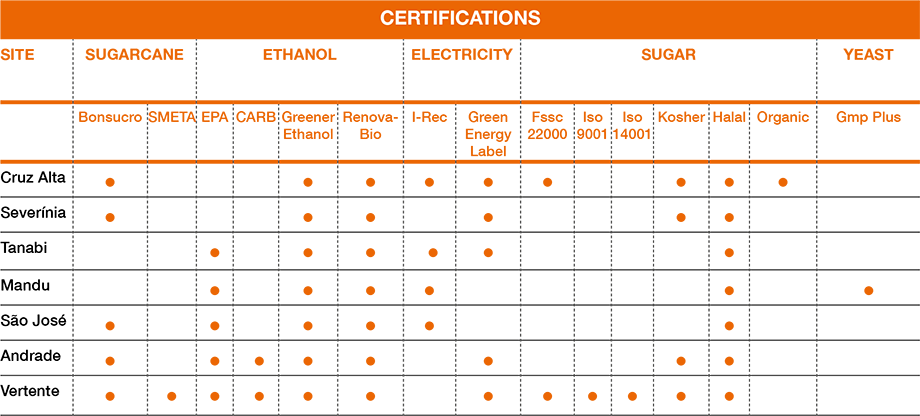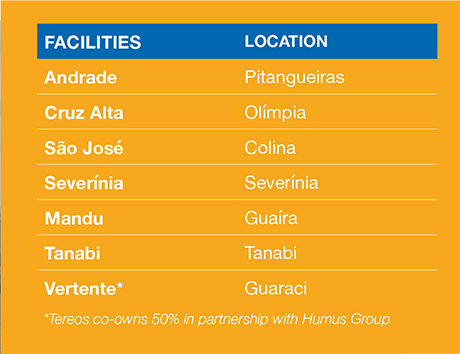Report 2021
As a leading player in Brazil’s sugar and energy industry, we are committed to supplying high-quality products while operating in an ethical and socially and environmentally responsible manner
Our Essence
About Tereos Sugar & Energy Brazil
We are a member of French group Tereos, the world’s second-largest sugar producer by volume. Our Brazil operations are based in Olímpia, São Paulo, and we rank as the second largest sugar producer in the country.
We supply high-quality products from each of our seven mills in the northwest of São Paulo State. Our product portfolio of sugar, ethanol and electricity serves customers in the food and beverage, energy, and animal nutrition industries, in both local and international markets.
Ownership structure
Tereos Sugar & Energy Brazil is majority-owned by Brazilian holding company Tereos Internacional S.A., which holds a 57.27% equity interest, and minority-owned by Tereos Group company Tereos Participations S.A.S. (France), with a 42.73% interest. Tereos Group is controlled by Tereos SCA, a French agricultural cooperative with approximately 12,000 cooperative members.
Our operations
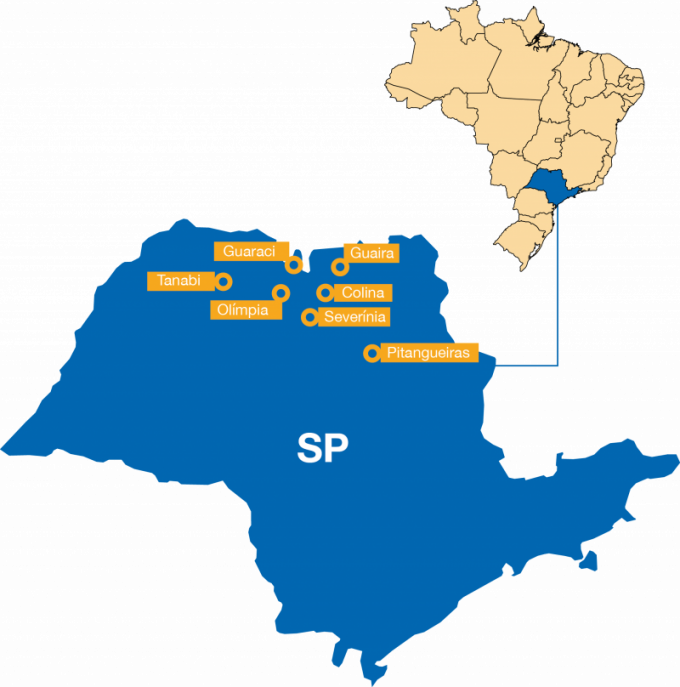
Sustainability agenda
Our eight material topics are connected to Tereos Group’s global strategy. Identifying these topics is important in understanding stakeholder perceptions of our impacts and management approach. These topics are linked to 12 of the United Nations (UN) Sustainable Development Goals (SDGs).
Our five pillars
Sustainably performing agriculture: Increase yields while reducing our environmental footprint.
Positive industry: reduce water and energy consumption and recycle non-food by-products in our plants.
Safety: make health & safety our number one priority for our employees and suppliers.
Nutrition: Develop innovative solutions that meet the nutritional needs of our customers.
Local development: Support employment and skills development in the regions where we operate.
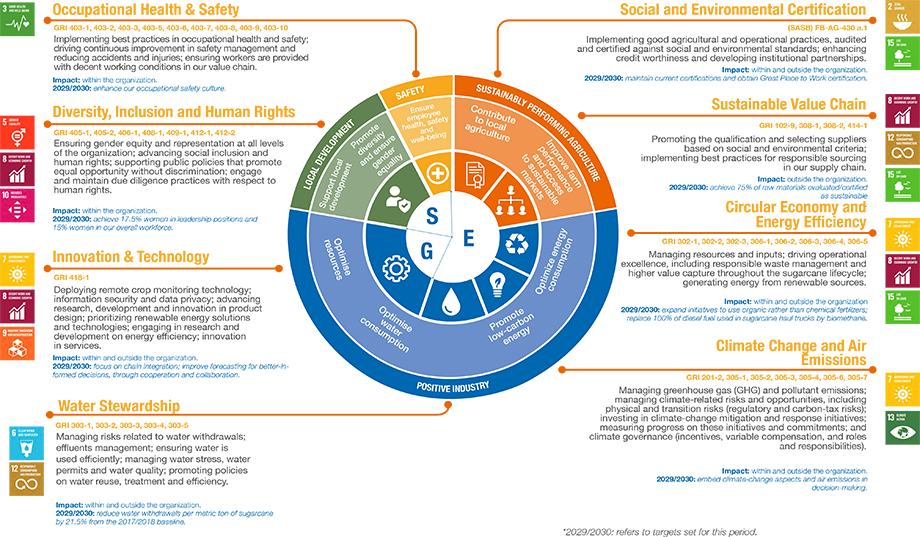
How we do business
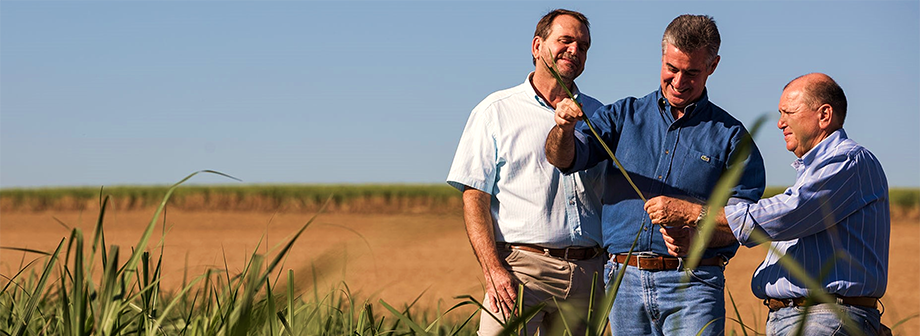
Everything we do is done in accordance with our principles, which guide our way of doing business and ensure it is sustainable in the long term.
Our performance
Sugarcane crush
We ended the 2020/2021 crop year with a record sugarcane crush of 20.9 million metric tons, up 10% on the previous crop year.
Total Recoverable Sugar (TRS) yield was 12 metric tons of sugar per hectare, higher than the average for the Mid-South. TRS is a measure of sugarcane quality and the rate at which it is processed into sugar or ethanol.
Sugar and biofuel (ethanol)
Our production mix in the year was 62% sugar (1.9 million metric tons)—up 21% from the previous crop year—and 38% ethanol (738,000 cubic meters), up 13% from the previous crop year.
Reflecting recent investments in logistics, our sugar exports expanded by 57% (1.15 million metric tons) in the year. On the Brazilian market, Guarani-branded sugar is sold to the leading supermarket chains, and on to end consumers.
Guarani – More Than Sugar
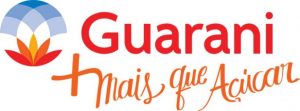
Tereos’ Guarani-branded sugar products are in thousands of Brazilian homes. From 2020 to 2021, our virtual store recorded a 270% increase in registered customers. All Guarani-branded products carry the Eureciclo reverse logistics label. In crop year 2020/2021, 267 metric tons of paper and plastic were processed by dozens of cooperatives in Brazil through this partnership.
Bioelectricity
Electricity output from sugarcane bagasse increased to 1,765 GWh from 1,531 GWh in the previous crop year. Electricity exports to the grid rose by 18% to 1,155 GWh, reflecting investments at our plants.
Other products
Dry sugarcane yeast for animal nutrition: the yeast produced at the Mandu site in Guaíra (SP) is now exported to more than 65 countries. In 2020, Tereos produced 4,500 metric tons of yeast.
A virtuous model
Nosso crescimento é baseado em um modelo sustentável que coloca a economia circular no centro da nossa atividade.
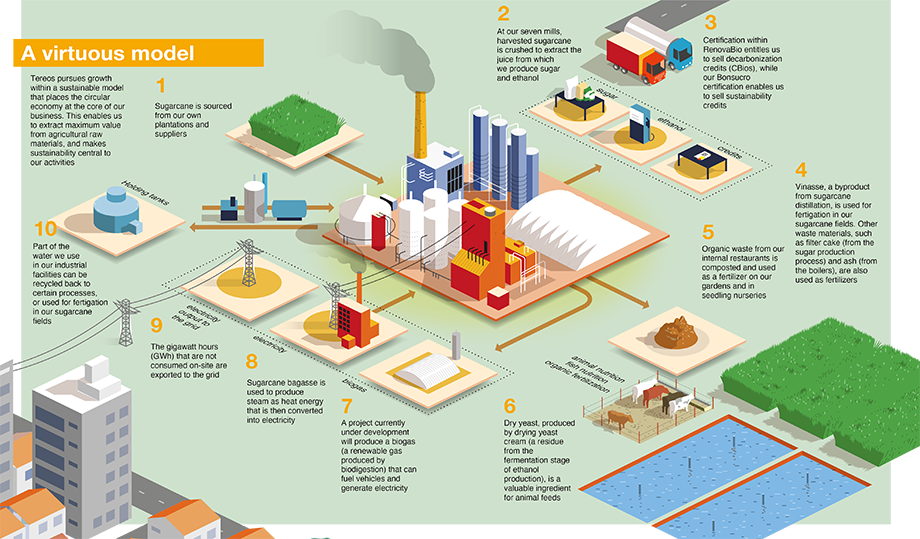
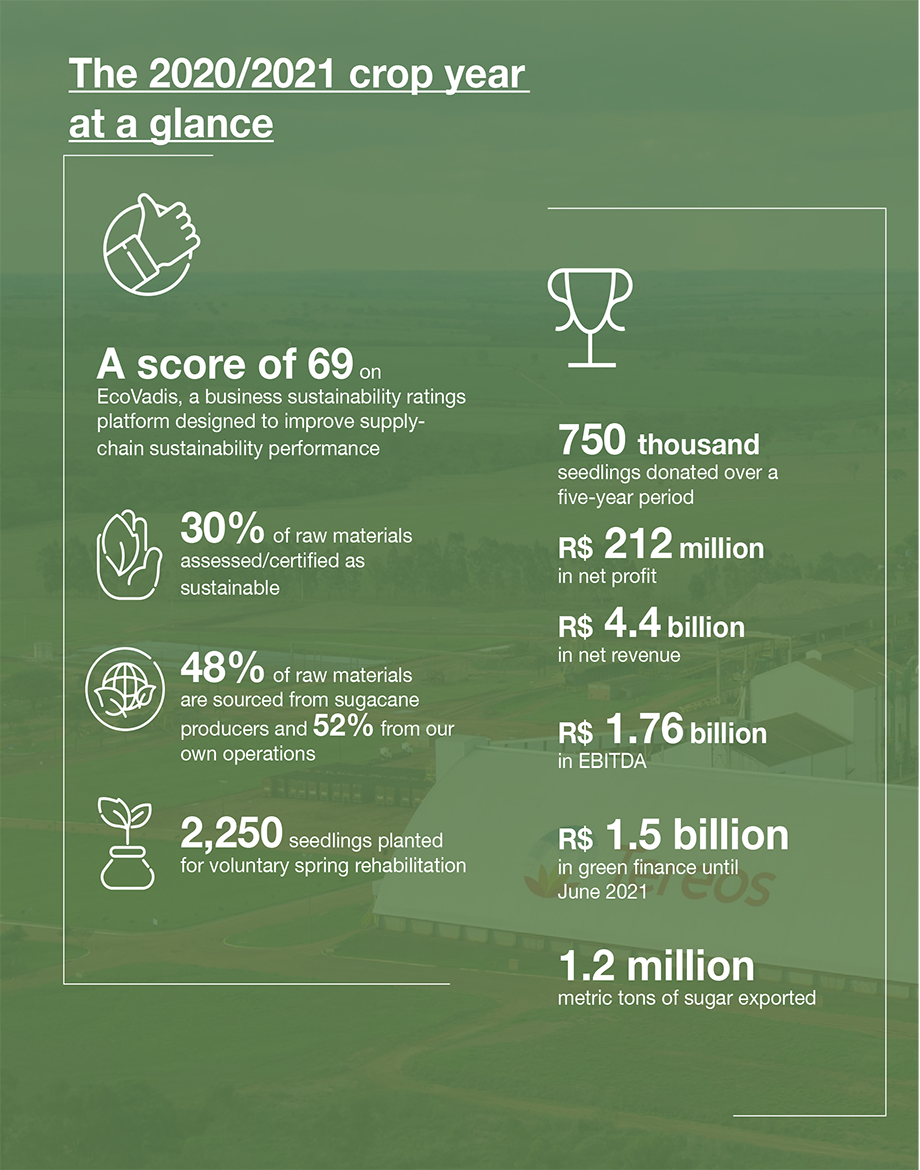
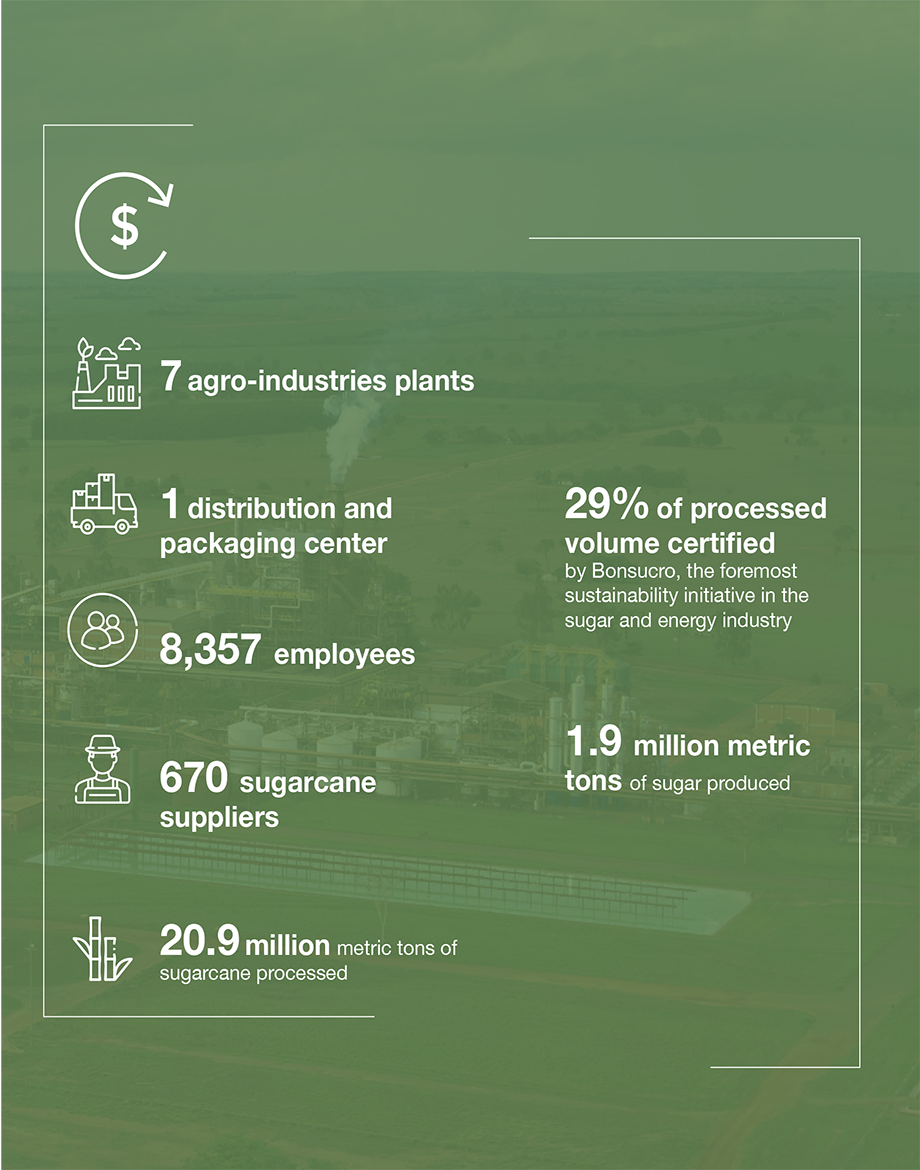
Respecting people and our planet
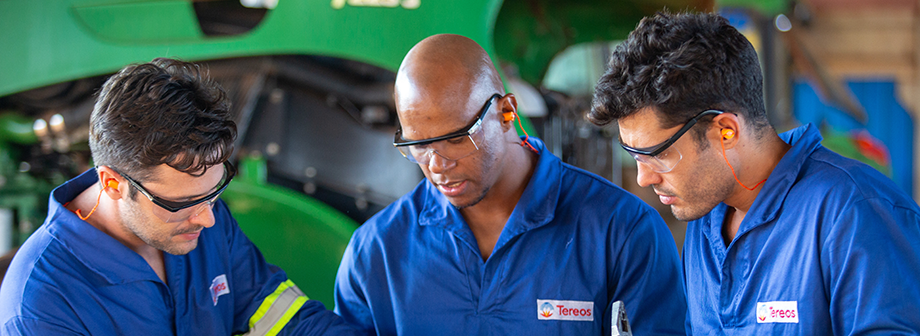
We work to continuously improve the way we manage our workforce and operations, in a socially and environmentally responsible manner.
Our people
We support the personal and professional growth of our employees.
8,357 employees in crop year 2020/2021
> Tereos has set a target to have 15% women in our workforce by the 2029/2030 crop year.

We have implemented a Women in Agribusiness Affinity Group (GAMA) that collaborates with other initiatives to increase women representation within the Group.
Through our Young Apprentice Program, we train women for technical field and mill positions.
> At Tereos we invest in training our workforce, and encourage employees to acquire new skill sets through specialization courses.
In 2020, we invested R$ 2.2 million in professional training and development.
> We have safety initiatives in place to protect the health of our employees.
We track safety indicators on a daily basis and support initiatives around active prevention
During the crop year we developed a Safety Workplan with inputs from all departments on ways to prevent accidents
All employees are covered by an occupational health and safety management system, and risk assessments are carried out for each position and related programs.
Environmental stewardship
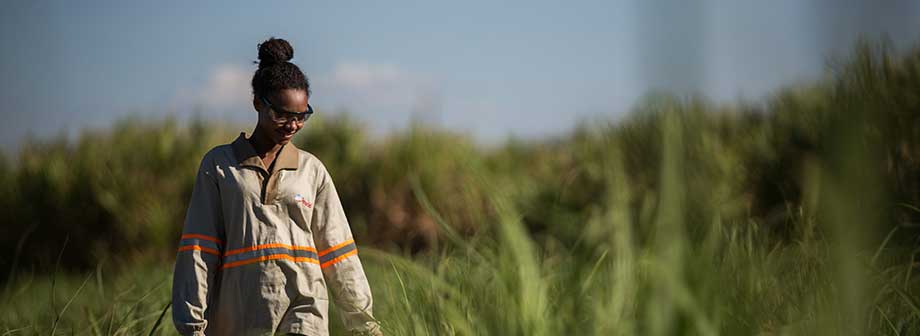
> We deliver on our commitment to sustainable agriculture by adopting and helping farmers to adopt environmentally friendly agricultural practices.
Our practices have been recognized by organizations such as Bonsucro and EcoVadis.
> Sustainable finance
Tereos secured more than R$ 1 billion in green finance in the 2020/2021 crop year, a figure that rose to R$ 1.5 billion in the first half of 2021.
We completed an issuance of R$ 348 million in Agribusiness Receivables Certificates (CRAs)—with a second-party opinion issued by Sitawi, a consulting firm specializing in sustainable finance.
Tereos completed the first sustainable finance transaction in Brazil’s sugar and energy industry—a long-term loan of US$ 105 million linked to four ambitious environmental targets.
We received US$ 30 million from the French Development Finance Institution (PROPARCO) to fund renewable energy, water savings and other projects.
As part of our efforts around sustainability, we have since issued our first infrastructure debentures, raising R$ 480 million.
Electricity
We produce renewable electricity from sugarcane bagasse and sell it directly to end consumers and in government-organized auctions. Our main investment focus is currently on renewable energy certification, such as Green Labelling.
In consuming and producing electricity, we ensure compliance with all power-sector regulations.
Water and effluents
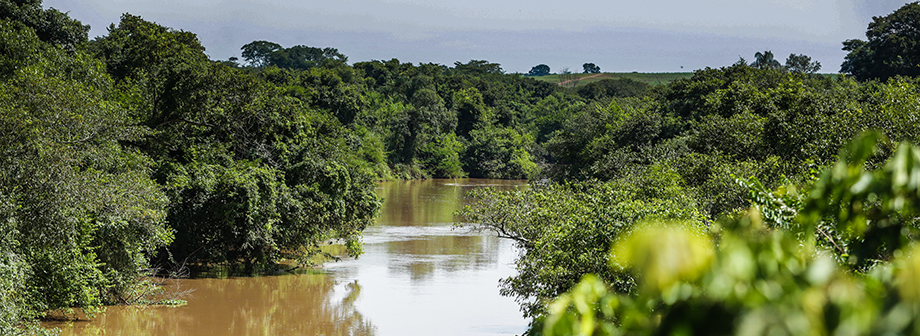
We invested R$ 1.2 million in water and effluent monitoring during the crop year, and each site has targets set for reducing wastewater and water withdrawals. A number of initiatives have been carried out within our Water Treatment, Optimization and Management (G.O.T.A) program, including the installation of flow meters at water withdrawal points and other points requiring water metering.
Our water requirement increased in 2020/21 due to the record sugarcane crush in the crop year. Despite the higher demand, our water intensity—or water withdrawals per metric ton of crushed sugarcane—was 3% lower, demonstrating improved process efficiency.
Emissions
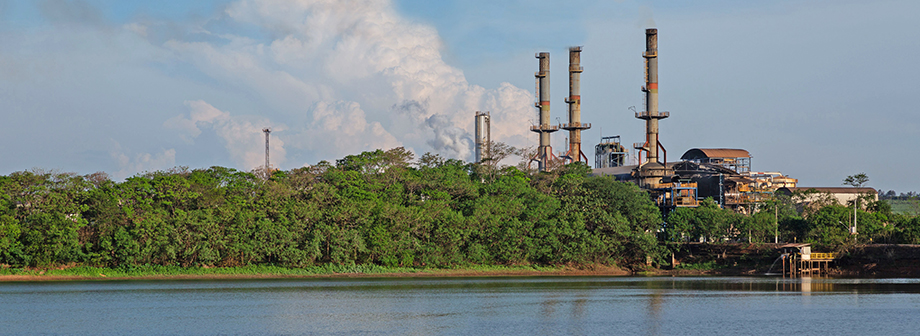
Measuring and monitoring greenhouse gas emissions provides essential inputs for our mitigation strategies and for improvements in management and production processes. This is especially important given that our sustainability-linked loans are conditional on meeting targets to reduce our emissions intensity (tCO2e per metric ton of sugarcane) by 3% per year through 2023.
We have launched a number of initiatives to this end, such as replacing nitrogen-based fertilizers and minimizing or replacing fossil fuels. We are increasingly investing in GHG mitigation projects and work to ensure compliance with related recommendations.
Waste
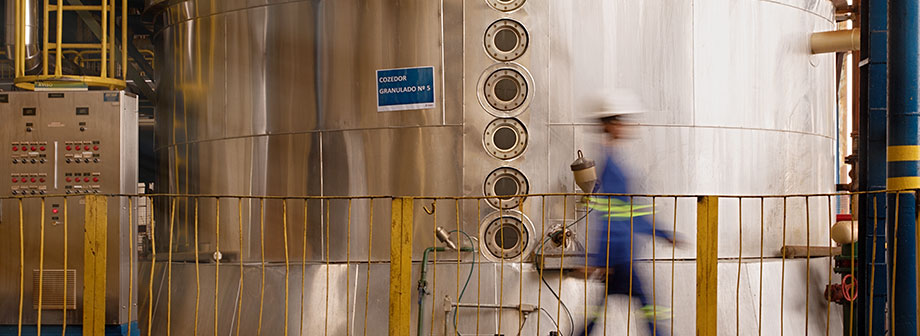
We have an effective waste management system that supports end-to-end waste traceability. Tereos has committed to compliantly disposing of 100% of the waste we produce, and we have set a target to reduce hazardous waste volumes by 5%.
Waste disposal is managed by a third-party company, which is responsible for on-site collection and compliant disposal. We have an effective waste management system that supports end-to-end waste traceability.
Our certifications
